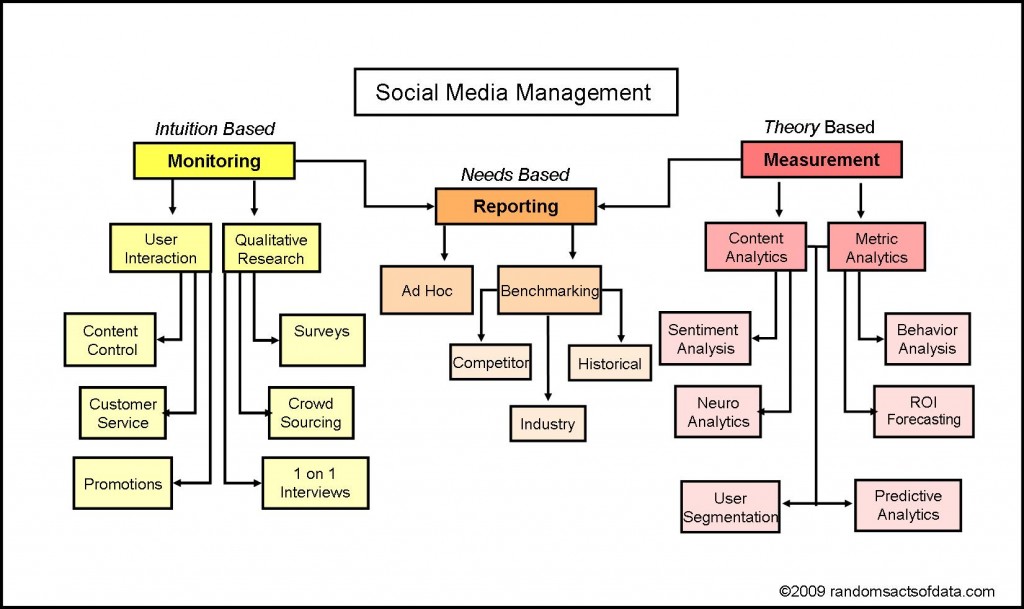Everyday on twitter, facebook, linkedin, etc I see posts on how to measure Social Media. Usually while reading these posts I have to resist the urge to find a knife and go on a “people who cheapen my skill set in the social media space” killing spree. For the most part the measurement solutions proposed in these articles lack context, double count metrics, and fail to isolate an overall measurement goal. The result is equations (usually to measure ROI or some variant of ROI) that have enough holes in them to strain the pasta for my Sunday spaghetti dinner.
Yesterday I got into a nice discussion with Olivier Blanchard about just how twisted many of the these measurement suggestions are and how they actually gain notary in the space. The conclusion was simple: people are making a quick buck off of people who don’t understand what measurement really is. Or in my candid and oh so witty manner of speech- people are getting played. In general, measurement is facing the same issue much of the social media world is facing- everybody’s “expert”.
So holding all this in the back of my head, I tried to understand how people get guided so off course by both these articles and their own better judgment. At around 5 o’clock last night it hit me. Adding qualitative aspect to a previously primarily quant based world has thrown some people so far for a loop that are willing to accept complete gibberish as a viable marketing solution as long as it has words like “tweets”, “likes”, and “posts” built into the equation. Additionally, you have an influx of tools to measure social media that don’t really MEASURE, they MONITOR. Did you see how I caps locked those words? It because we’re getting to my thesis: Social media monitoring is not social media measurement.
Why do people group these two very different things it one haphazard mess? A) because they can B) because people are dumb enough to listen to them c) because there’s a confusing mass of a no mans land in the middle that I like to call “reporting”.
So what really constitutes measurement and what types of analysis are simply monitoring? Well it just so happens I created the chart below to help clear up the misconceptions. Note you won’t see the words “engagement” or “volume” in this chart. This focuses solely on the outputs and ignore the inputs ( ie: variations of metrics & types of content). Why are we ignoring the inputs? Because any good data nerd knows that the inputs should be guided by your companies internal goals and not by some one with a white board and a video on youtube. I could jabber on and on about what each of these is and why they fall where they do, but this post is already too long. I’m going to let the image speak for itself. In entries to come I will be analyzing various proposed measurement methodologies, pointing out the potholes, and giving credit where credit’s due. Thoughts? Comments? Bitter rage? Let me have it!

Special thanks to @devintrix & @norcross for listening to me babble last night about this.


Pingback: Social Media Intelligence. We sell or else. | davaidavai.com()
Pingback: Social Media Measurement | ChristopherBerry.ca()
Pingback: A Short Girl Living in a Tall City » PLUR = Social Media Principles For Ravers()
Pingback: Social Media monitoring and the spectrum of online relationships « David j Carr | Digital fragments and Brand Reality Creative()
Pingback: Tabs aufräumen: Links zum Wochenende()
Pingback: Measuring Social Media Marketing ROI | Rationally Creative()